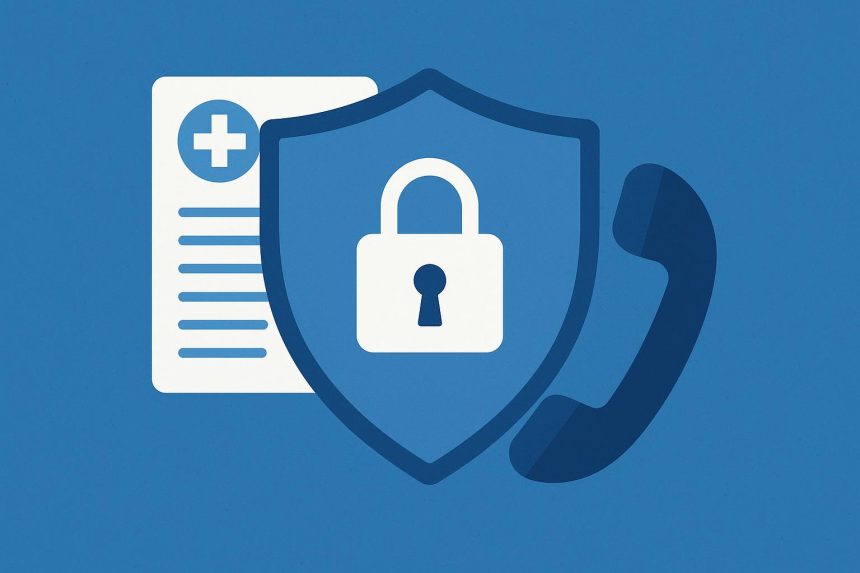If you own or operate a healthcare practice, whether it’s a primary care office, a dental practice, or a multi-specialty clinic, you know that HIPAA-compliance is a must. It is your legal and professional obligation to maintain patient confidentiality.
HIPAA, the Health Insurance Portability and Accountability Act of 1996, sets national standards for protecting individuals’ personal health information (PHI) and provides rights to individuals over their health data. It established rules for the privacy and security of health data, applies to “covered entities” (like healthcare providers, health plans, and clearinghouses) and their “business associates,” and gives individuals rights to access and correct their records. The HHS Office for Civil Rights enforces HIPAA, with penalties for violations.
If your office fails to follow HIPPA rules and regulations, you may be subject to penalties, not to mention loss of patient trust. HIPAA compliance fines vary based on the violation’s severity, from unawareness to willful neglect, with potential penalties ranging from $100 to $1.5 million per violation per year. The U.S. Department of Health and Human Services (HHS) uses a four-tiered structure to assess fines, considering factors like motive, harm, cooperation, and prior history. In addition to civil penalties, criminal charges can lead to significant fines and imprisonment for individuals who knowingly misuse patient health information.
So, how do you ensure patient confidentiality and HIPAA-compliance when it comes to phone calls? You may be surprised to know that most professional answering services are HIPAA compliant. With the right medical answering service partner in place, every call will be answered with professionalism and accuracy, and you can rest easy knowing that all patient information received, discussed or relayed during a call is handled with confidentiality. This means your office staff can have more time to attend to patients or handle other essential tasks, without worrying about answering every single incoming call.
Let’s say your office is busy with back-to-back patient visits during the flu season, and the phone keeps ringing. A HIPAA-compliant answering service can triage and prioritize calls, relay messages securely, and even schedule appointments without compromising patient confidentiality. This level of smooth and integrated communication helps reduce chaos while supporting you in providing excellent patient care. Even if your team is at lunch, in a meeting, attending to patients, or out for the day, a professional answering service is available 24/7/365 to handle calls and keep your patient communications HIPPA-compliant with every interaction. Whether you need this type of service for overflow calls, after-hours, during lunch or around the clock, an answering service can help save time and money. But what about patient confidentiality?
Here are some facts about medical answering services and HIPAA compliance:
- Telehealth and Remote Communication: Let’s say you are starting to offer telehealth visits to meet patient demand or support remote consultations for your pediatrics practice. New HIPAA guidelines in 2025 emphasize the importance of secure telecommunication platforms with end-to-end encryption and verified patient identity. A HIPAA-compliant answering service acts as a secure gatekeeper, giving you peace of mind when coordinating remote appointments or collecting patient information by phone.
- Business Associate Agreements (BAAs): Whether you’re working with an answering service, medical billing company, or cloud IT vendor, HIPAA requires having formal Business Associate Agreements. These are contracts that outline each party’s responsibility to safeguard PHI (protected health information). A HIPAA-compliant answering service will offer a BAA, proving that they meet strict privacy and security standards. Staying on top of BAAs protects your practice from shared liability in the event of a data breach. It’s important to ask an answering service about Business Associate Agreements as part of their compliance with HIPAA regulations and best practices.
- Strict Guidelines: HIPAA compliance also includes respecting patients’ “right of access” to view or get copies of their medical records promptly. When answering services or virtual receptionists handle appointment scheduling or handle other types of calls that require PHI, their adherence to privacy rules means your patents’ confidential information is communicated securely and only to authorized individuals. The right medical answering service will undergo rigorous training on this issue, not just once, but on a regular basis and for all new call agents.
- Cybersecurity: With healthcare data breaches rising dramatically, updated HIPAA Security Rule standards in 2025 require organizations to adopt advanced safeguards. These cybersecurity safeguard requirements may include multi-factor authentication (MFA), regular vulnerability testing, encryption of data at rest and in transit, and comprehensive incident response plans. Your medical answering service should include secure communication protocols, encrypted call recordings, and strict access controls as part of their HIPAA compliance. Always check whether your medical answering service has protocols in place to support your business with cybersecurity measures and protect your patients’ data at rest and in transit.
- Regular HIPAA Audits: You might hear that the Office for Civil Rights (OCR) is increasing audit activities for covered entities and their business associates. And, practices that use HIPAA-compliant answering services with audited security programs have greater protection from penalties. This means that outsourcing your call handling to the right partner isn’t just more cost-effective and convenient, as it also demonstrates your commitment to maintaining compliance and patient confidentiality under ever-changing regulations.
Whether you’re a small dental office, a hospital, or a large multi-specialty clinic, the key is partnering with an answering service that truly understands and upholds HIPAA obligations. This type of answering service will provide training, regular compliance updates, and technology designed to protect PHI. You can rest easy knowing that no calls are missed, and focus on delivering excellent care. Don’t let concerns about HIPAA and patient confidentiality hold you back from freeing up yourself and your staff for more face-to-face patient interactions, while an answering service handles the phones. With the right partner, you can achieve both: excellent patient care at your office or clinic, and confidential, HIPAA-compliant call handling for those on the phone. Remember, you don’t have to do it all. By asking the right questions and choosing the best HIPAA-compliant answering service for your situation, location, practice size, and staffing needs, you’ll wonder why you didn’t outsource your call handling sooner.
Lynn Martelli is an editor at Readability. She received her MFA in Creative Writing from Antioch University and has worked as an editor for over 10 years. Lynn has edited a wide variety of books, including fiction, non-fiction, memoirs, and more. In her free time, Lynn enjoys reading, writing, and spending time with her family and friends.















